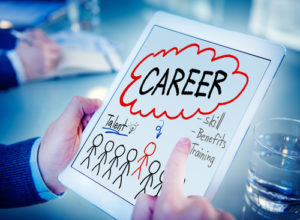Just 41 percent of U.S. college students say they feel either very or extremely prepared to enter the workforce, according to a new survey.
And while the number of students feeling reasonably prepared doesn’t crack the 50 percent mark, it’s still a significant increase from 2017, when just 29 percent of students said they felt very prepared, according to the fifth annual McGraw-Hill Education Future Workforce Survey.
Men seem to feel significantly more prepared for their careers than women, the study reveals–50 percent of make students say they are very or extremely prepared for their careers, compared to just 36 percent of female students. Non-traditional students also report significantly higher levels of confidence–half of these students said they felt well-prepared, compared to 34 percent of traditional students.
Employers often observe that recent graduates don’t come prepared with strong workforce skills, and surveyed students seem to echo that sentiment. Fewer than half of students say they feel they’ve gained the critical skills needed to transition to the workforce, such as complex problem solving (43 percent), resume writing (37 percent), interviewing (34 percent), or job searching (31 percent).
There is a big gap between student and employer perception of preparedness, especially when it comes to professionalism and work ethic. Most notably, 77 percent of students feel confident about their professionalism and work ethic. Conversely, the NACE (National Association of Colleges and Employers) Job Outlook Study recently surveyed employers and found only 43 percent felt recent college graduates were proficient in these areas.
“While it’s encouraging that student perception of career readiness is up year-over-year, much more work is required to ensure that students graduate with the confidence, skills, and resources needed to enter the workforce,” says Bill Okun, president of higher education at McGraw-Hill Education. “To successfully transition from college to employment, students need help applying knowledge in a real-world context and developing the critical thinking and communication skills that they’ll need on the job.”
College often presents time-management challenges to students, and just 39 percent of surveyed students say they feel prepared to meet that challenge. Only 41 percent say they are ready to handle financial obligations associated with higher education. Fifty-three percent of surveyed students say they are ready to handle a higher-ed course load and 53 percent are prepared for faculty interactions.
Students actively seek additional help in preparing for their careers, with 51 percent indicating they would like more internships and professional experiences. Although the majority of colleges offer career services, fewer than half take advantage of them.
Workforce readiness and the skills gap are persistent issues, with other surveys and reports drawing attention to the debate.
The Strada-Gallup 2017 College Student Survey also points to a skills gap between higher ed and industry–96 percent of surveyed chief academic officers say they believe their institution is very or somewhat effective at preparing students for the workforce, but just 11 percent of business leaders strongly agree.
That survey also uncovered three commonalities among students who have significantly more confidence in their workforce preparation:
1. Students speak often with faculty or staff about their career options.
2. Students have at least one university official initiate a conversation with them about their career options.
3. Students believe their school is committed to helping students find a rewarding career.
- Students say study abroad opportunities boost employability skills - May 10, 2024
- An overwhelming majority of organizations paid ransomware last year - May 9, 2024
- 5 trends impacting higher ed’s path in 2024 - May 8, 2024

